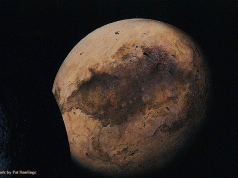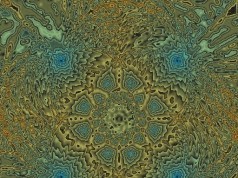The old thinking about the brain was that neurons were given at birth, and then progressively died. A researcher named Altman found otherwise in 1962: he showed that adult human brains created new neurons. Few believed him, even fewer found that interesting. However, by 1995, incontrovertible evidence of new neurons was found in at least two regions of the brain.
And if one blocked neurogenesis, one blocked learning.
The first memory organ of taxicab drivers learning a lot of streets, the hippocampus, got visibly enlarged.
A rat hippocampus creates at least 10,000 new neurons a day. Yes, a vulgar rat.
Yet, the mind is not just about adding neurons. For those keen to remember their past, fresh neurons are the worst things. Newly formed neurons in the hippocampus – an area of the brain involved in switching from short term memory to the longer sort – dislodge previously learned data, a May 2014 Science article shows.
That’s counter-intuitive at first. Naively, one would expect new neurons to mean a better brain, thus better memory. On second examination, though, if neurons are the brains, new neurons mean new brain, not the old brain, with its old memories.
Many studies have shown that boosting neural proliferation before learning enhances memory in mice.
More neurons increase the capacity to learn new memories. However, memory is based on circuits, synapses, and maybe pre-existing “grandmother neurons” (whatever that exactly means: it could be a tight group of cells). If one adds new elements, it makes sense that they have nothing to do with pre-existing neuronal geometries.
Quite the opposite: creating new neurons could clear old memories. Therapeutically.
In the 2014, Science study, newborn and adult mice were trained to fear an environment that brought electric shocks. The mice learned the task quickly. Infant mice remembered the horror for only one day, adult mice retained the fear for weeks.
This difference correlates with neurogenesis. Memory persistence in newborn mice was enhanced genetically and by chemically suppressing neurogenesis after learning. In adult mice, four to six weeks of regular exercise – an activity known to promote neurogenesis – reduced the previous fear.
Massive neurogenesis in young animals explains why youngsters do not remember their early life. And, as luck has it, an animal model exists.
Guinea pigs and Chilean rodents called Degus have longer gestation periods than mice, and thus reduced brain growth after birth. Baby Degus and guinea pigs do not have infantile amnesia. Yet, heavy exercise and drugs promoting neurogenesis brings it on.
Just as neurogenesis tends to deny the past, it denies visiting again the feelings one had then. That’s resentment. French for feeling again: re-sentiment (with a second “s” added to make a snake sound).
Nietzsche used the word “ressentiment”, because German has not word for “resentment”.
That semantic gap is, per se, reason enough to suspect that Germans walloped in it: if one avoids a notion like the plague, it is an indication that one indulges in it. Luther is full of resentment against the Jews, and Hitler against the French, and then, the Jews.
For the philosopher Kierkegaard, ressentiment occurs in a “reflective, passionless age“, stifling creativity and passion in passionate individuals. Individuals who do not conform to the masses are made into scapegoats and objects of spite by the masses, to maintain the status quo ante and to imbue the masses with their sense of superiority.
According to Nietzsche, the more a person is strong-willed, and dynamic, the less place and time they have for contemplating what’s done to them. The reaction of a strong-willed person (a “wild beast“), when it happens, is short: it is not a prolonged filling, and take-over of their entire intellect by an obsession.
It’s impressive to realize how the most recent neurological findings (above) relate to those philosophers’ insights.
The super intelligent person is always in full neurogenesis, in her haste to model the world with more faithfulness. That makes her unable to hold a grudge: she has better thing to think about.
This opens a new way out of the eternal wheel of conflict, and various vicious circles: react as wild beast to attack, but then smother what led to it under the new mindset of neurogenesis.
Instead of rejecting the world as painful, and hoping for a better one as Christians, Muslims and Buddhists do, think the world again, and the old problematic will fade away.
The same may apply to entire societies, nations, or religions, or civilization. If any of these favor ressentiment, it will have to spurn neurogenesis, or its societal equivalent. Just as individuals will.
Hence a vicious circle: the more resentment, the less imagination, and intelligence, and thus the more madness in crowds as in individuals.
Let’s notice, moreover, that denial and bad faith (a la Sartre, De Beauvoir) are very close to resentment.
So what would the moral conclusion of the preceding be? Generating new ideas, just as generating new neurons, is how to break out from the past’s vicious circles. Higher intelligence is also a better morality.
Patrice Ayme






